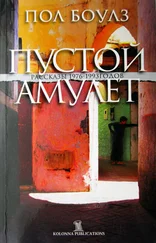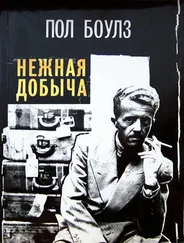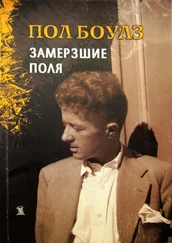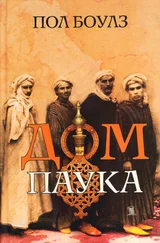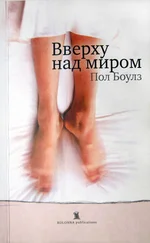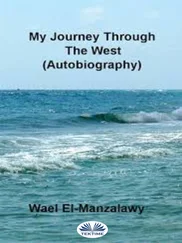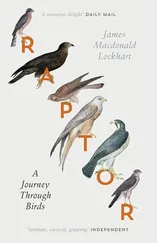Пол Боулз - Journey Through Morocco
Здесь есть возможность читать онлайн «Пол Боулз - Journey Through Morocco» весь текст электронной книги совершенно бесплатно (целиком полную версию без сокращений). В некоторых случаях можно слушать аудио, скачать через торрент в формате fb2 и присутствует краткое содержание. Год выпуска: 1963, Жанр: Современная проза, на английском языке. Описание произведения, (предисловие) а так же отзывы посетителей доступны на портале библиотеки ЛибКат.
- Название:Journey Through Morocco
- Автор:
- Жанр:
- Год:1963
- ISBN:нет данных
- Рейтинг книги:4 / 5. Голосов: 1
-
Избранное:Добавить в избранное
- Отзывы:
-
Ваша оценка:
- 80
- 1
- 2
- 3
- 4
- 5
Journey Through Morocco: краткое содержание, описание и аннотация
Предлагаем к чтению аннотацию, описание, краткое содержание или предисловие (зависит от того, что написал сам автор книги «Journey Through Morocco»). Если вы не нашли необходимую информацию о книге — напишите в комментариях, мы постараемся отыскать её.
magazine. (The original title was "The Route to Tassemsit".) Bowles begins his adventure by car in Tangier, driving through Chaouen, Marrakech, across the Middle, Grand and Anti-Atlas mountains, to Taroudant, Tiznit and Tafraout. He finally arrives at a remote village where he is entertained by musicians and dancers, while recording Moroccan music for the Library of Congress.
Journey Through Morocco — читать онлайн бесплатно полную книгу (весь текст) целиком
Ниже представлен текст книги, разбитый по страницам. Система сохранения места последней прочитанной страницы, позволяет с удобством читать онлайн бесплатно книгу «Journey Through Morocco», без необходимости каждый раз заново искать на чём Вы остановились. Поставьте закладку, и сможете в любой момент перейти на страницу, на которой закончили чтение.
Интервал:
Закладка:
He passed back and forth through the alley in this way for a quarter of an hour or so before the qahaouaji , having made the tea, climbed the ladder again to the roof where we sat. When he came I said casually: "What's going on down there?" Although in most places it would have been clear enough that a madman was loose in the streets, in Morocco there are subtle distinctions to be made. Sometimes the person turns out to be merely holy, or indisposed.
"Ah, poor man," said the gahaouaji . "He's a friend of mine. We were in school together. He got high marks and played good soccer."
"What happened?"
"What do you think? A woman, of course."
This had not occurred to me. "You mean she worked magic on him?"
"What else? At first he was like this ‑‑ " He let his jaw drop and his mouth hang open; his eyes became fixed and vacant. "Then after a few weeks he tore off his clothes and began to run. And ever since, he runs like that. The woman was rich. Her husband had died and she wanted Allal. But he's of a good family and they didn't like her. So she said in her head: No other woman is going to have him either. And she gave him what she gave him."
"And his family?"
"He doesn't know his family. He lives in the street."
"And the woman? What happened to her?"
"He shrugged. "She's not here any more. She moved somewhere else."
At that moment the cries came up again.
"But why do they let him run in the street? Can't they do anything for him?"
"Oh, he never hurts anybody. He's just playful. He likes to scare people, that's all."
I decided to put my question. "Is he crazy?"
"No, just playful."
"Ah, yes. I see."
At twilight one day we were the tea guests of Moulay Brahim, one of the Moroccans who previously had helped me make contacts with native musicians. He lived in a rooming house near the dyers' quarters. The establishment, on the second floor, consisted of a dozen or more cubicles situated around an open central court with a dead fountain in the middle. No women were allowed in the building; it was a place for men who have left home and family behind. Not an object was visible that could even remind one of the existence of traditional Moroccan life.
Moulay Brahim is militantly of his epoch; his life is almost wholly abstract. He spends his hours in an attitude of prostration on his mattress, his head touching a large short-wave radio. He knows what time it is in Jakarta, just where the Nigerian representative to the United Nations is at this moment, and what Sekou Touré of Guinea said to Nkrumah of Ghana about Nasser of Egypt. The radio is never silent save for a useless five minutes now and then while he waits impatiently for a program in Cairo or Damascus or Baghdad to begin. He follows the moves in the cold war like an onlooker at a chess match, making searing comments on what he considers the blunders of both sides. Only the neutralist powers have his sympathy.
We sat in the dusk around the dimly illumined radio and listened to it hiss and crackle. Moulay Brahim passed pipes of kif silently, intent on the panel of the instrument, weighing each gradation of static with the expression of a connoisseur certain of his ground. Fifteen minutes might go by without a trace of any sort of program coming out ‑‑ only the unvarying noise of interference. His face did not change; he knows how to wait. At any moment he may hear something identifiable. Then he can relax for a bit, while the tea-concession man from across the courtyard brings in the big tray, sets up the glasses and rolls the mint between his hands before stuffing it into the pot.
But soon it is not enough for Moulay Brahim to know that he is in touch with the BBC service to the Middle East, and he begins once again the painful search for the unfindable. Inhabitants of the other rooms came in and squatted, but it was difficult to engage them in anything more than desultory conversation. They had learned from experience that in Moulay Brahim's room it was better to be quiet. At one point, when a particularly confused noise had for some time been issuing from the loudspeaker, I rashly suggested that he adjust the dial. "No, no!" he cried. "This is what I want. I've got five stations here now. Sometimes others come in. It's a place where they all like to get together and talk at once. Like in a café." For a young and deracinated Moroccan like Moulay Brahim, radio is primarily neither a form of entertainment nor a medium of information. It is a sort of metaphysical umbilical cord, a whole manner of existence, an essential adjunct to feeling that he is in contact with life.
When we had finally persuaded him that it was time for us to leave, he reluctantly rose from the radio and took us out into the streets to the apothecary market, where I had expressed a desire to go. It is the place you visit if you want the ingredients for making black magic. There were six stalls in a row, all bristling with the dried parts of birds, reptiles and mammals. We wandered slowly by, examining the horns, quills, hair, eggs, bones, feathers, feet and bills that were strung on wires in the doorways.
I was put in mind of the unfortunate Allal and the rich widow, and I described Allal to Moulay Brahim. He knew him; everybody in Marrakech knew him, he declared, adding as he pointed to the rows of glass containers in front of us: "You can get everything for that sort of business here. But you've got to know how to blend them. That takes an expert." He raised his eyebrows significantly and approached the nearest merchant to mutter a few words to him. A packet containing tiny seeds was brought out. Moulay Brahim examined them at some length, and bought fifty grams. "What is it?" I asked him." But he was enjoying his brief role as mystery man, and merely rattled the seeds in their paper, saying: "Something very special, very special."
We left Marrakech at noon, driving straight up to Ouirgane, in a valley about three thousand feet above the plain. Brilliant day. Sky like a blue enamel bowl overhead. Lunch outside in the sun at Le Sanglier Qui Fume, our table midway between a chained eagle and a chained monkey, both of which watched us distrustfully while we ate. Below, hidden, somewhere nearby, the little river roared over its rocks. The Grand Atlas sun fiery, Monsieur gave us drooping old straw sombreros to wear during our meal. A tame stork, very proprietary, strutted around, poking its beak into everything. It was wary, however, of the monkey, which had a long bamboo pole in its hand and patiently tried to trip it up each time it came past. Everything excellent: hors d'ouvre, frogs' legs and chicken paprika. Madame is Hungarian, said she lives in the hope that people coming through Ouirgane will prove to speak her language, ". . or at least know Budapest," she added. Obviously disappointed in us. On up to the pass at Tiz'n Test and over the top. The valley of the Souss thick with a mist that looked like smoke. Only the long sloping rim of the Anti-Atlas showed in the sky to the south, fifty miles across. Below, a gulf of vapor. Got into Taroudant at seven. The heat was still everywhere inside the walls. While I was unpacking, a procession of Guennaoua shuffled by in the street. (The Guennaoua are a Sudanese religious cult whose members practice medico-psychic therapy.) Tried to get out through a door in the patio, but it was padlocked. I peeked through a crack and saw them going past slowly, carrying candle lanterns. The pounding of the drums shook the air.
After Taroudant ‑‑ Tiznit, Tanout, Tirmi, Tiffermit. We cross great hot dust-colored valleys among the naked mountains, dotted with leafless argan trees as gray as puffs of smoke. Sometimes a dry stream twists among the boulders at the bottom of a valley, and there is a peppering of locust-ravaged date palms whose branches look like the ribs of a broken umbrella. Or hanging to the flank of a mountain a thousand feet below the road is a terraced village, visible only as an abstract design of flat roofs, some of the color of the earth of which they are built, and some bright yellow with the corn that is spread out to dry in the sun.
Читать дальшеИнтервал:
Закладка:
Похожие книги на «Journey Through Morocco»
Представляем Вашему вниманию похожие книги на «Journey Through Morocco» списком для выбора. Мы отобрали схожую по названию и смыслу литературу в надежде предоставить читателям больше вариантов отыскать новые, интересные, ещё непрочитанные произведения.
Обсуждение, отзывы о книге «Journey Through Morocco» и просто собственные мнения читателей. Оставьте ваши комментарии, напишите, что Вы думаете о произведении, его смысле или главных героях. Укажите что конкретно понравилось, а что нет, и почему Вы так считаете.

